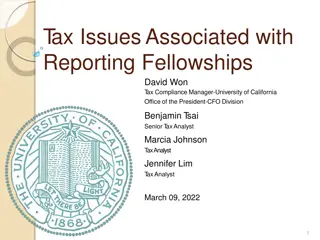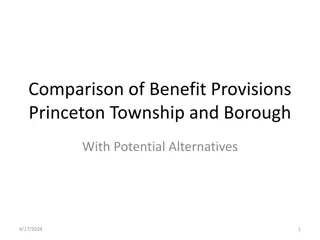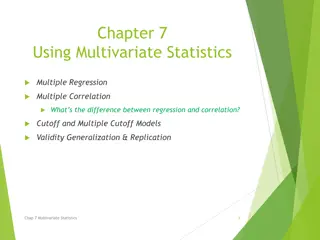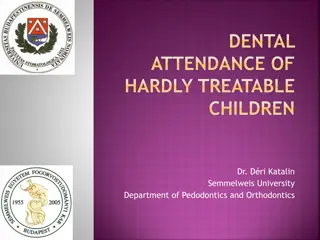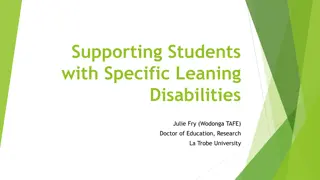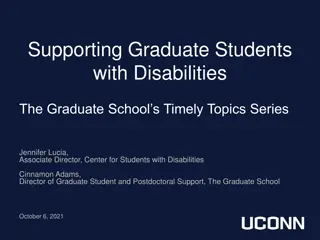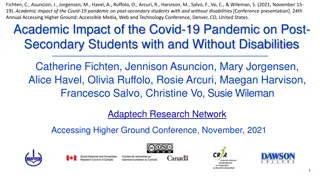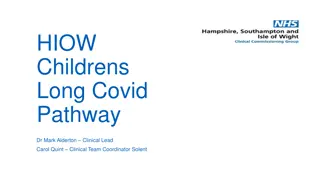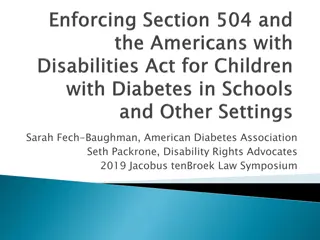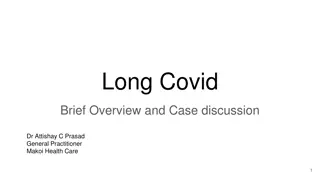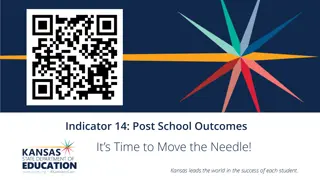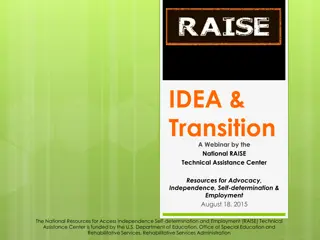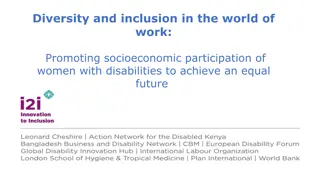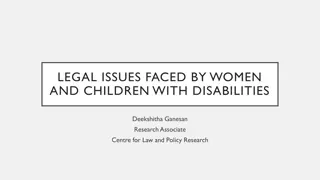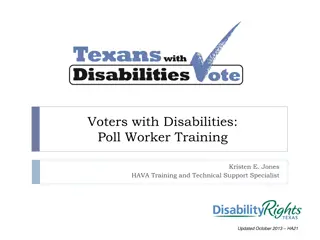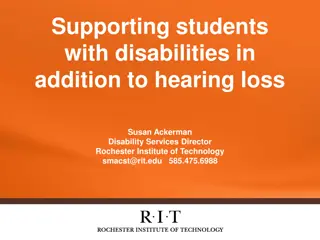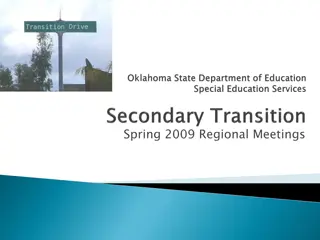Ensuring Compensatory Services for Students with Disabilities Post-COVID-19
Educational guidance emphasizes providing compensatory services for missed specially designed instruction and related services due to the pandemic, ensuring the fulfillment of a Free Appropriate Public Education (FAPE) for students with disabilities. The individualized determination of compensatory services by IEP teams is crucial to address progress gaps caused by the lack of services. Compensatory services aim to remedy knowledge and skill deficits resulting from denied FAPE, requiring thoughtful consideration during IEP meetings to amend or modify student IEPs accordingly.
- Compensatory Services
- Students with Disabilities
- Special Education
- COVID-19 Impact
- Individualized Education Program
Download Presentation

Please find below an Image/Link to download the presentation.
The content on the website is provided AS IS for your information and personal use only. It may not be sold, licensed, or shared on other websites without obtaining consent from the author. Download presentation by click this link. If you encounter any issues during the download, it is possible that the publisher has removed the file from their server.
E N D
Presentation Transcript
Guidance Regarding Determination of Compensatory Services for Students with Disabilities as a Result of COVID-19 Date of Issue: 4-29-2021
Compensatory services for specially designed instruction and related services missed during the pandemic should be provided when the failure to provide those services has denied the student his or her right to a FAPE. Compensatory services are a remedy that is sometimes awarded by a due process hearing officer or as the result of a state complaint investigation. That does not mean that an IEP Team cannot make a determination that compensatory services are necessary in order to ensure the provision of FAPE without an administrative proceeding. Compensatory Services = Compensatory Education
The goal of compensatory services is to remedy the knowledge and skill deficits that result when missed services are determined to have caused a denial of a FAPE. The pandemic may have been the main reason for the denial of FAPE Compensatory Services is not defined in IDEA.
Neither IDEA nor MUSER require an hour for hour correspondence when calculating the amount of compensatory services to be awarded. It is the role of the IEP team to determine the need, type, amount, frequency, duration, and location of compensatory services necessary to address lack of progress toward IEP goals and objectives resulting from missed services. Determining the need for compensatory services must be made on an individual basis by the student s Individualized Education Program (IEP) team.
Compensatory services and ESY services are not interchangeable, and a particular student may be entitled to one, both, or neither depending on individual circumstances. Compensatory Services ESY
IEP teams should utilize the upcoming IEP meetings to discuss services that have not been provided during remote or hybrid instruction, consider the impact of missed services on student progress towards meeting IEP goals and objectives, and determine the need for compensatory services. If it is determined that compensatory services are warranted, the IEP team mayagree to amend (a current) or modify (at an annual) the student s IEP. IEP team discussions regarding missed services have already been ongoing.
SAUs must ensure proper written notice is provided to the student s parent(s)/guardian(s) if the IEP team proposes or refuses changes to the student s IEP, including the type, frequency, and location of compensatory services to be provided to the student. Proper written notice also includes the right of parents/guardians to seek compensatory services by requesting a special education mediation conference or due process hearing. Written Notice must be provided
Step 1 Determine Present Levels The IEP team may review formative and summative, formal and informal assessment data to determine progress toward each student s IEP goals and objectives during the period of remote and hybrid instruction. Determining the Need for Compensatory Services
Step 2 Determine Which Goals Are MET or NOT MET Following the review of achievement and progress data, the IEP team should determine what goals and objectives the student was expected to achieve but did not achieve due to the disruptions in services. Determining the Need for Compensatory Services
Step 3 Determine if Compensatory Services Are Required The IEP team should then determine if compensatory services are required to ensure that the student can achieve those goals and objectives. If compensatory services are required, the IEP team must determine the nature, frequency, and duration of those services and may document them in the student s IEP. A student s placement in general education environments should not be changed due to the need for compensatory services. Determining the Need for Compensatory Services
Determining the Need for Compensatory Services We are still in the pandemic and many are not back to full time in person services.
consider additional learning loss and recovery services, such as accelerated learning programs, tutoring programs outside normal school hours, summer enrichment programs, and other opportunities designed to address learning loss that are available to all students. Ed Covid-19 Handbook Volume 2-2021 TWO benefits on inclusionary practices: 1) additional opportunities for compensatory services 2) equitable access to general curriculum learning opportunities. Inclusive Services
SAU Planning of Inclusive Services It is imperative that special education teams are included in planning for the acceleration of learning within the SAU to ensure that students with disabilities have access to such opportunities and that IEPs continue to align with the curriculum and content standards being addressed.
School officials are reminded that funding for compensatory services is not limited to the district s IDEA grant. CARES Act Elementary and Secondary School Emergency Relief Fund (ESSER Fund) The American Rescue Plan Act of 2021 (P.L. 117- 2) (ARPA) will also be able to use forthcoming ESSER III funds for the same purposes. More information soon!! Funding
If a students parent(s)/guardian(s) disagrees with the IEP team s proposed type, frequency or location of compensatory services, the parent(s)/guardian(s) may pursue dispute resolution options, such as mediation conferences and/or due process hearings in order to resolve the disagreement. Disagreements
The Maine Department of Education will be issuing general guidance for both summer programming and reopening guidance for the fall of 2021 in the near future. Looking Forward


